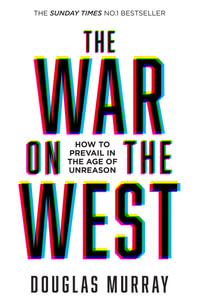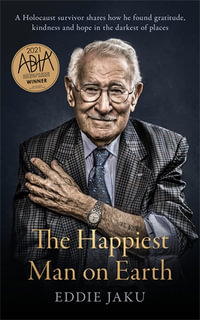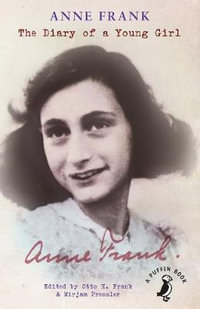What brought about an end to the Cold War has long been a subject of speculation and mythology. One prominent argument is that the United States simply bankrupted the Soviet Union, outspending the Soviets on the Strategic Defense Initiative (SDI, or "Star Wars") and forcing a reckoning. Archie Brown's latest work rejects any simple answers. The Human Factor focuses on the human element, and in particular on the main figures involved--Mikhail Gorbachev, Ronald Reagan, and Margaret Thatcher. His book looks at them both as individuals and as engaged in a dynamic that between 1985, when Gorbachev came to power and 1989, when Reagan left office, brought about not only an easing of East-West tensions but a great deal more. Brown argues that the Cold War ended at an ideological level with Mikhail Gorbachev's speech at the United Nations in December 1988, when he announced that the people of every country had the right to choose their own government. The Cold War ended on the ground when the peoples of Eastern Europe took Gorbachev at his word in 1989 and Soviet troops were ordered to stay in their barracks.
The standard narrative of the end of the Cold War--that it was won by the threat of Western (especially American) military power and spending--has underpinned support for the use of force in the Middle East (including the invasion of Iraq in 2003), the expansion of NATO, and advocacy of a hard line toward contemporary Russia. On the other side of the divide, the view that the United States set out to break up the Soviet Union and undermine Russia is widely accepted in Russia today and has led to a hardening of both domestic and foreign policy. Vladimir Putin's high popularity ratings owe much to his being perceived as the leader who restored Russian pride and great power status. Brown ultimately confronts standard, monocausal explanations for the end of the Cold War and does so by offering a nuanced and deeply personal account of the three individuals most responsible for bringing it about.
Industry Reviews
"The Human Factor is in many respects the culmination of Archie Brown's long and distinguished career as a scholar and writer. It is full of a lifetime's achievement of wisdom and thought." -- Fiona Hill, Brookings Institution, Washington DC
"Brown's book is a superb achievement, a balanced, judicious and authoritative account of a foundation event of our contemporary world" -- Christopher Read, Diplomacy and Statecraft
"This very important, detailed and clearly-written account of the 'Gorbachev Period' of Soviet political history certainly deserved to win last year's London Pushkin House Book Prize for what the judges considered to be the most significant recently published English language work about Russia ... Archie Brown makes a convincing case." -- Martin Dewhirst, East-West Review
"A fascinating and instructive read ... Everybody will learn something from this first-class book." -- Dominic Sandbrook, The Sunday Times
"A masterly survey of the end of the cold war and the roles played in it by Gorbachev, Ronald Reagan and Margaret Thatcher." -- Tony Barber, The Financial Times
"Lucidly written and scholarly." -- The Spectator
"It is often a challenge for historians to find the right balance between the human factor and the historical forces at play. The value of Archie Brown's study [...] is that it does precisely that." -- Christopher Coker, Literary Review
"What The Human Factor does do, and does so well, is provide a fascinating new perspective on already well-trodden ground." -- All About History
"Brown devotes several fine-grained biographical chapters to the "making" of Gorbachev, the "rise" of Reagan, and the "moulding" of the "Iron Lady", and then traces the three leaders' interactions... The result is a compelling picture of what led [them] to act as they did and how the difference each one made differed from the impact of the others." -- William Taubman, The Political Quarterly
"... magisterial work... based on a wealth of sources in Russian and English... The Human Factor is as much a fine work of foreign policy analysis as it is Cold War history... a fascinating, close-structured narrative." -- Christopher Hill, Cold War History
"...a thought-provoking book...I highly recommend this book to readers. Brown is right to highlight the human factor in the ending of the Cold War...the sharpness of many of Browns insights, condensed with commendable crispness in this 500-page [make the book an], eminently readable foray into a highly contentious subject." -- Sergey Radchenko, Slavic Review
"The book is crammed with information, is well-written, and shows that Brown has a dry sense of humour." -- SCRSS Newsletter
"Archie Brown, arguably the world's greatest authority on late-Soviet Russia, mounts a scrupulously detailed account of the three major players, their key roles, and those of senior advisors around them. However, 'Mutual trust painstakingly gained, and then lost, is especially difficult to re-establish.' Brown's judgment should be a motto on every Western leader's desk." -- Gary Hart, United States Senator (Ret.)
"Thanks to Archie Brown, world-renowned author of several outstanding books on Mikhail Gorbachev, we now have his meticulous, definitive account of how Gorbachev, Ronald Reagan, and Margaret Thatcher all contributed mightily to ending the Cold War." -- William Taubman, Pulitzer Prize-winning author of Khrushchev: The Man and his Era and of Gorbachev: His Life and Times
"Another tour de force from Archie Brown: detailed scholarship, elegant prose, and a clear argument. Read this book to find why we should not ignore the 'human factor' underpinning great historical shifts. A fascinating account of how the Cold War ended, explored through the personal interactions between three world leaders - Gorbachev, Reagan, and Thatcher." - Bridget Kendall, Former BBC Diplomatic, Moscow, and Washington Correspondent























